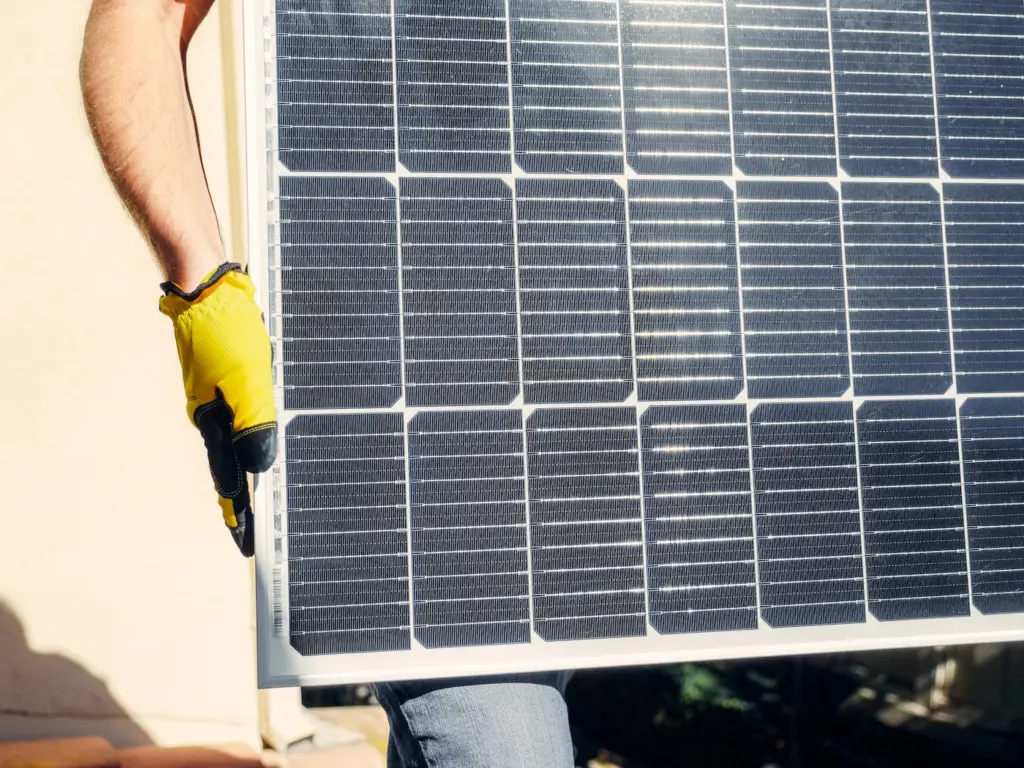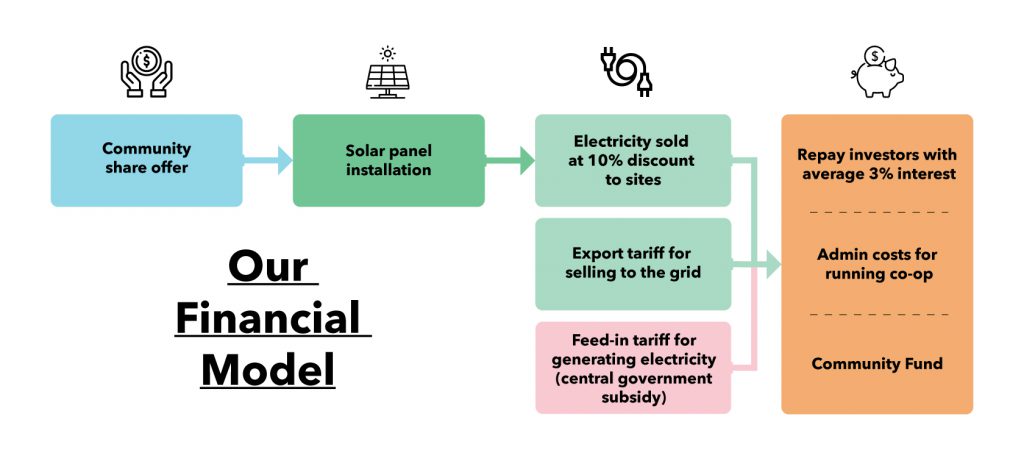When it comes to solar panels, choosing where to get them can bring up some tricky questions. That’s why we’ve put together some resources to help you understand the ethical issues involved in solar PV manufacturing and weigh up your buying options
While we can all agree that solar energy is a fantastic (and necessary) alternative to fossil fuel use, at Repowering London we are often asked questions about how they are made and how to make an ethical choice when choosing which panel to install. And as demand for solar panels increases, their manufacture is becoming very big business – which means it will become even harder to work out which panels and suppliers to choose if you are worried about environmental and social justice considerations around the process. Among the issues that create confusion for solar panel purchasers are:
- The carbon emissions created in the manufacture and transport of panels – particularly since so many solar panels or components are made in markets far away from the UK and therefore have to travel a long way to reach us.
- Whether human rights are honoured in the manufacturing process – especially when manufacturing may take place in a region or country where treatment of specific minority groups is under scrutiny.
- Where raw materials are sourced and how – because solar panels require silicon (from sand) and rare metals, the process will include mining, transport and refining that will inevitably have a carbon and ecological footprint.
- Options for recycling and reuse – there are markets to source second-hand panels, but you also need to exercise some caution, while recycling schemes are in the early stages of development.
These are extremely complicated issues, but we know they are important to everyone who wants to create a cleaner, fairer energy system using solar power. At Repowering London, our team is involved in finding some ways forward, but we certainly don’t have all the answers, so we’ve put together a list of some resources that we hope will help everyone weigh up their own solar panel purchasing options.
Big thinking from Big Solar
Big Solar Co-op is producing a series of three blogs, looking at the carbon footprint of solar panels and the conditions in which they are made. “Are some panels better than others, and if so, which ones?” are among the tricky questions it attempts to answer in a very detailed and considered way, with a focus on embodied carbon and human rights in the series so far.
Insights from Ethical Consumer
Ethical Consumer has put together its own ranking of ethical suppliers, available to magazine subscribers, which considers carbon footprint, pollution from manufacture, labour and resource concerns. But anyone can access its wide-ranging analysis of the market, which will also help in making solar panel purchase choices and includes some manufacturer-specific information related to issues like political lobbying, use of forced labour and supply chain control. It also suggests some ways that everyone can take action to secure a more ethical solar panel supply chain in the future, for instance by supporting the FreedomUnited campaign or the Corporate Justice Coalition.
ActionSustainability forces the issue
At a recent meeting of Community Energy London, Consultant EJ Allen of Action Sustainability discussed specific challenges around modern slavery in relation to solar panels and the risks related to forced labour in the supply chain. She explained that 45% of the polysilicon used for solar panel production comes from a region in China in which forced labour is a concern, and how difficult it is to source panels that are guaranteed ‘slavery-free’ as a result. (See the In Broad Daylight report from Sheffield Hallam University for more on this subject.)
She pointed out that for people who are responsible for buying solar in a commercial setting, this brings up a number of barriers to purchase (including legal barriers in the US) as well as reputational risk. For domestic consumers, of course, there won’t be that level of external scrutiny on this decision, but certainly no-one wants to knowingly participate in the practice of forced labour or human rights abuses if they have any other option.
The organisation has created a guide (Addressing modern slavery and labour exploitation in solar PV supply chains – Procurement Guidance) with practical tips for anyone involved in the procurement of solar panels. While this will be most applicable to installers and other larger-scale buyers, there will undoubtedly be something for everyone to take away, whatever the scale of your panel purchase.
Recycling innovation at ReSolar
Providing a second life for solar panels, UK organisation ReSolar helps find new homes for used solar panels in community energy sites or households. It arranges to collect faulty panels, repairs those it can, and then works with partner charities and social enterprises to relocate them where they can continue producing clean energy. Panels that can’t be fixed are broken down and the usable components recycled to make new ones. Because solar panel reuse is such a new industry, ReSolar is also involved in research and review of the process to feed back to manufacturers. The end goal is to reduce the amount of waste created by the solar industry and to create future panels that are more resilient and reusable. We’ll all be watching this space!
Community Energy England action
As the voice of the community energy sector, Community Energy England is taking the issue of ethical sourcing seriously and recently issued a statement on the subject. It acknowledges the fact that information about where raw materials are obtained and how the people making panels are treated is hard to find. To help, it is setting up an Ethical Sourcing group to produce resources for its members – which includes Repowering London – bringing together what it can find about different solar manufacturers. We’ll be follow developments with interest to see what we can learn.
Solar is still a sustainable answer
If all of this is making you wonder whether installing solar energy makes sense, we understand. But at Repowering London we are confident that it remains a key part of creating a fair, accessible and low-carbon energy system.
As the Ethical Consumer analysis notes, levels of embodied carbon in solar panels is falling and panels made from recycled materials aren’t far away. In the meantime, it reports that the carbon footprint of UK-based solar panels can be “paid back in the first six years of their operation” and have a potential lifetime of more than 40 years. In every year of a panel’s lifetime it is actively reducing energy costs and pollution, and keeping carbon emissions out of our environment.
If the panels are owned by the community – such as in the co-operatives supported by Repowering London – they contribute even more: for instance by funding projects that matter to local people, building strong local bonds, and empowering everyone to play their part in creating London’s fair, green energy future.
Considering installing your own solar panels? See our FAQ on installing home solar for help.


